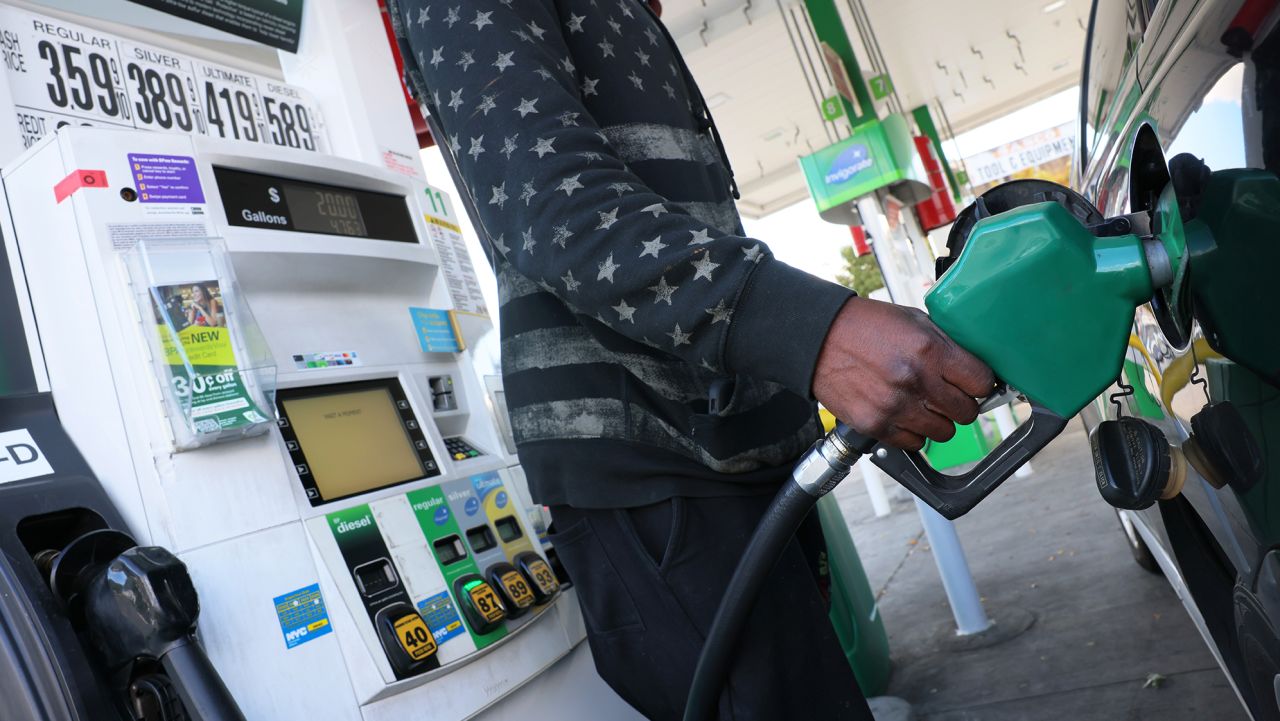US drivers have never seen a year quite like 2022.
Wild price swings at the gas pump throughout the year make predicting prices for 2023 even more difficult.
Russia’s invasion of Ukraine and the sanctions that it sparked on Russian oil sent the price of crude soaring in February at the beginning of the conflict.And even though relatively little Russian crude oil was ever exported to US refineries, the fact that oil prices are set on global commodity markets meant that US drivers were not spared a spike in gas prices.
Prices were far more volatile throughout 2022 than they were in other recent years, both during and before the pandemic roiled oil markets.
By June, the average US gas price crossed $5 a gallon for the first time ever, hitting a record $5.02 on June 14. But after that came a prolonged slide in gas prices, prompted by a number of factors, including the release of oil from the US Strategic Petroleum Reserve, concerns about the possibility of a recession in both the US and global economies, and a surge in Covid cases that caused renewed lockdowns in Asia. By the end of the year, the national average price of a gallon of regular gas had fallen to just over $3, well below the pre-invasion price, back to the average price of late summer of 2021.
But there was not the same level of relief for the price of diesel. Diesel prices fell 20% from their peak in June, only about half the decline for gasoline during the same period. And while gasoline is cheaper than it was a year ago, diesel remains close to the pre-2022 record price set in 2008. Greater demand for North American diesel by Europe in the wake of the war in Ukraine kept diesel prices so high.
While relatively few US drivers use diesel for their private cars, it is still the fuel used by most heavy trucks, so it had an impact on the average American’s wallet. Most trucking companies charge a fuel surcharge to their customers when diesel prices increase. Because virtually all goods purchased by Americans are on a truck at some point before those purchases, that was a factor driving inflation higher.
The wild swings in oil and gasoline prices were a major factor in battered consumer confidence during the year. But those swings were not felt evenly across the nation and throughout the year. Many of the western states faced much higher gas prices because of more limited refining capacity. But there were a number of refinery accidents throughout the year that caused spikes in other regions as well. So, everyone saw wide swings in prices, though not always at the same time.
There is also the wide variation in gas taxes, from 68 cents a gallon in California to only 15 cents a gallon in Alaska. Some states temporarily halted their state gas taxes during the year in the face of high prices.
But the difference in average income in the different states meant that drivers in some of the states with relatively low prices had to work almost as many hours to buy 15 gallons of gas as those drivers in high-priced states.
For example, in Mississippi, where the hourly average wage in November was $24.52, according to the Labor Department, it took 1 hour and 41 minutes of work to earn enough to pay for 15 gallons at $2.75 a gallon at year’s end. In California, where the average price of regular was $4.38 a gallon, or about 60% more than in Mississippi, the average hourly wage of $37.61 meant that they only had to work four more minutes to buy those 15 gallons.





